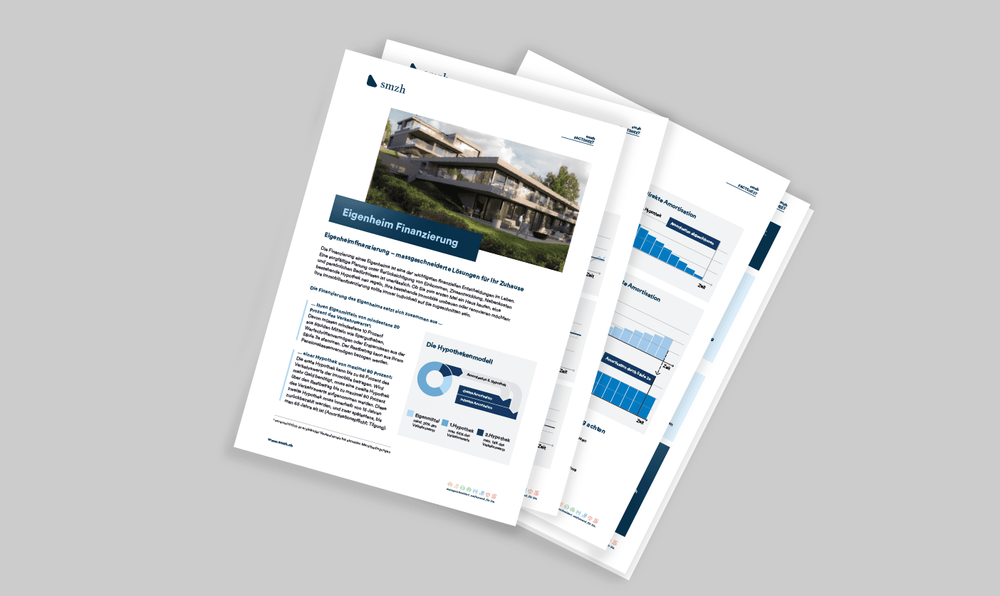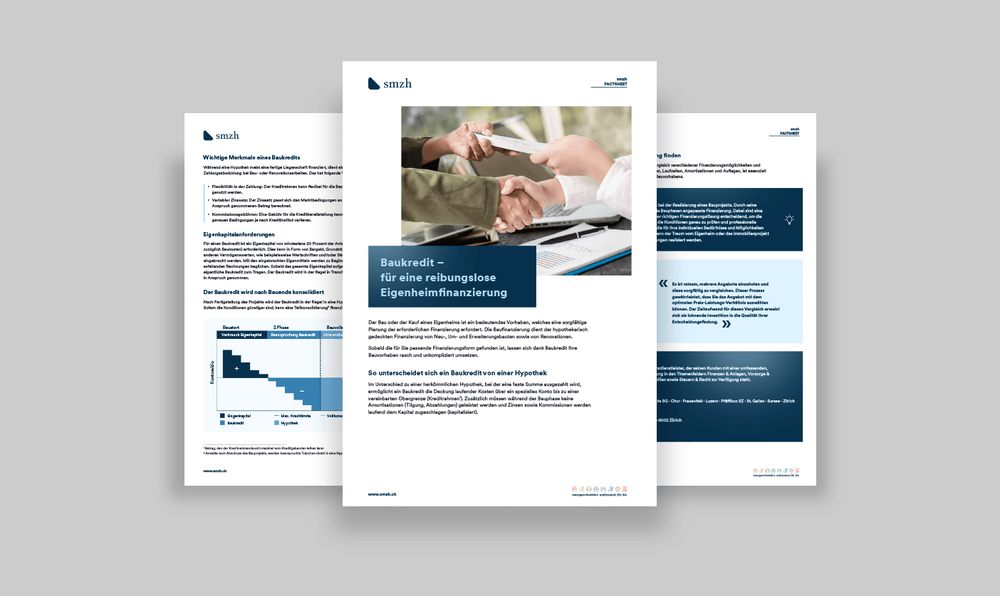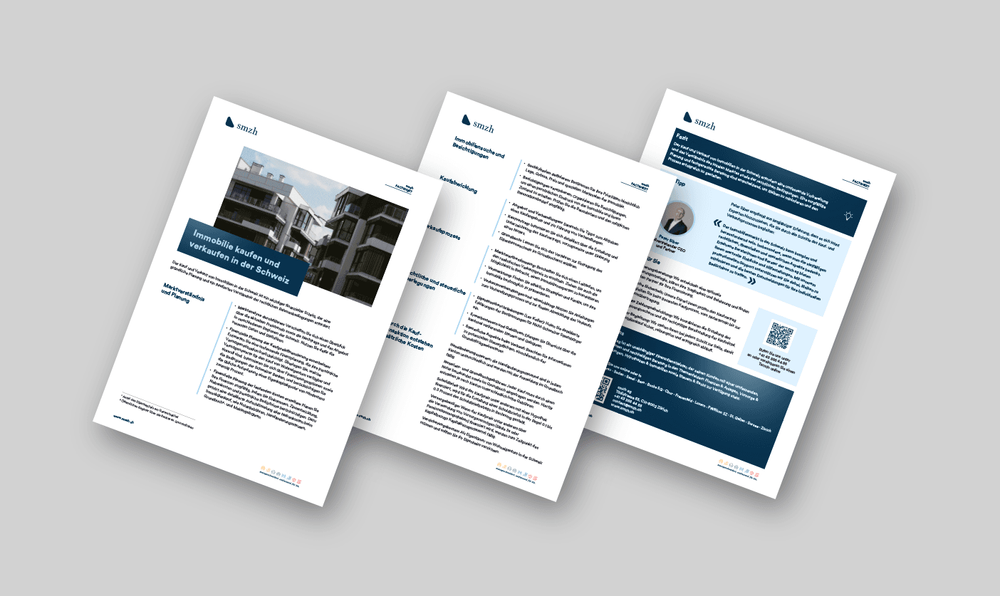Extending a mortgage becomes necessary when the current term expires. To benefit from favorable interest rates and conditions, it is important to start planning an extension early. You should look into your options and go through various possible scenarios as early as 18 months prior to expiry. Professional advice and thorough market analysis can help you make the best decision possible.
One critical aspect when extending a mortgage is the current valuation of your property. Changes in the real estate market can influence the value of your property and, as a result, the financing conditions. This can have positive or negative consequences for the terms of your mortgage.
Mortgage conditions don't just include the interest rate, but also further factors such as the level of amortization and potential additional requirements. Moreover, you should examine your current mortgage contract, particularly its clauses, to avoid any surprises and seize the best options possible.

Start planning about 18 months before your current mortgage expires. This gives you enough time to prepare for negotiations and compare offers.
Request a professional revaluation of your property to determine its current market value. This is the basis to calculate your financing needs and the options for an extension.
Check current interest rates and conditions of various providers. In addition to the interest rate, you should also examine other contractual conditions such as level of amortization, repayment terms, and potential requirements.
Experts can support you in identifying the mortgage models and maturities that are right for you. This is particularly important if your financial situation or other circumstances have changed.
Analyze your existing contract for essential terms that may impact your flexibility or costs of extension.
Negotiate with your current or potential new provider to secure the best terms for your situation.
Finalize the new contract in time before the old mortgage expires to seamlessly transition to the new maturity.

Learn what is essential when financing your own home – from choosing the right mortgage to developing a viable long-term financing strategy. Careful planning and regular reviews are crucial for your financial success. In addition, smzh provides comprehensive support on tax matters relating to marriage, pension planning, and wealth – ensuring a targeted and holistic financial plan.
(in German)

Learn how to use a construction loan flexibly for your building project and discover the advantages it offers over a traditional mortgage. With proper planning – from equity ratio to utilization of the credit line – you can effectively control costs and risks. smzh also offers expert advice on tax matters relating to marriage, pension planning, and wealth, supporting you in developing a well-thought-out, future-oriented financial plan.
(in German)

Whether you are buying, renovating, or replacing a mortgage: We offer customized financing solutions tailored to your situation. Discover how to optimally combine your own funds and a mortgage – for a home that truly suits your needs.

A construction loan enables the ongoing financing of your building project – precisely tailored, with no immediate amortizations required. It is ideal for new construction, renovations, or extensions, allowing you to maintain full control over costs and liquidity at every stage of the building process.

Whether you are buying or selling: A real estate transaction in Switzerland requires sound knowledge, legal clarity, and careful planning. This fact sheet provides a concise overview of everything you need to know – for a secure and seamless process.
Our experts support you throughout the entire extension process:

Let us guide you to make the right decisions when extending your mortgage:

We handle questions such as those shown on the right on a daily basis. You don't need to deal with them by yourself – our 360° Check-Up is free of charge and non-binding.
Start planning as early as 18 months before your current mortgage expires to have enough time for analyses, comparisons, and negotiations.
Yes, switching can be favorable particularly if a different provider offers better terms. It's important to plan carefully to weigh the costs of switching and potential benefits.
The current market value of your property has a direct influence on your financing conditions. A realistic valuation is key to determine financing needs and provide leeway in negotiations.
Conditions include the interest rate, the level of amortization as well as potential contractual requirements or restrictions.
A careful analysis of the contract provides information on clauses that might restrict your flexibility or lead to additional costs.